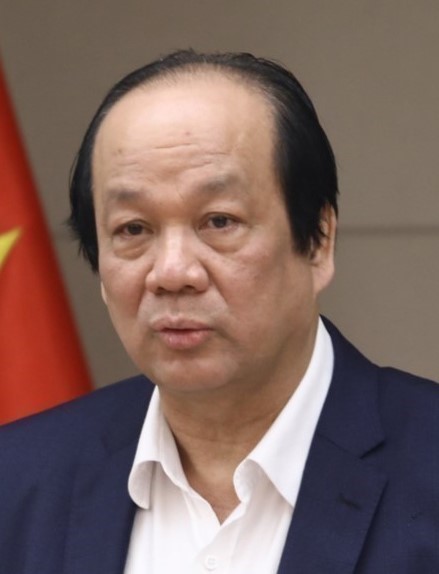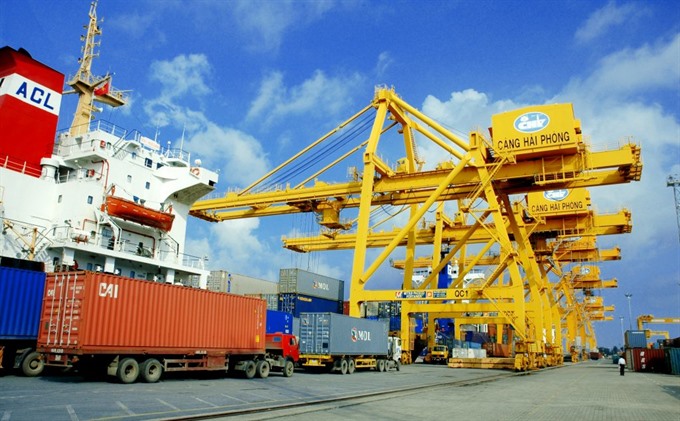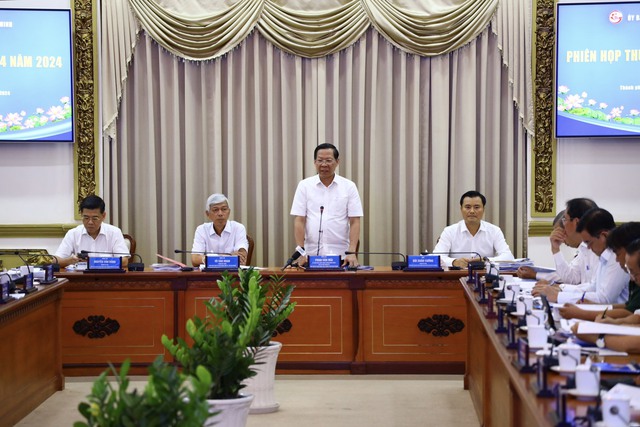 Economy
Economy

 |
| Hải Phòng City has been told to reduce fees for using infrastructure, service facilities and public utilities at its ports. — Photo mt.gov.vn |
Lê Văn Thành, secretary of Hải Phòng municipal Party Committee and chairman of the municipal People’s Council, said at a working session with the Prime Minister’s Working Group on Tuesday that adjustments in seaport charge rates would be up for approval at the municipal People’s Council meeting in December.
The Secretary of Hải Phòng Party Committee said that fees for import-export goods stored in 20 feet shipping containers (VNĐ250,000 per container) and in 40 feet containers (VNĐ500,000 per container) were currently considered reasonable.
Fees for liquid and bulk cargo are proposed to be reduced from VNĐ20,000 to VNĐ16,000 per tonne.
Thành said fees for import and export of goods at ports in Hải Phòng were equal to just a half of the fees for 20 feet shipping container and 62.5 per cent of the fees for 40 feet shipping container applied at border gates in Lào Cai and Lạng Sơn.
According to the Hải Phòng municipal People’s Committee, after eight months of collecting fees for seaport infrastructure use, 617 businesses have fallen into arrears worth about VNĐ45.7 billion (US$2.01 million).
At the working session, Trương Văn Cẩm, chairman of the Việt Nam Textile and Garment Association, said while the implementation of seaport infrastructure fees in Hải Phòng was legal, if it was done without collecting opinions it would make it difficult for enterprises to respond.
“We know that the city approved four documents and announced fee collection to businesses on the same day,” Cẩm said.
He asked Hải Phòng to quickly consider reducing fees to help enterprises in accordance with guidance from the Prime Minister.
Nguyễn Đình Cung, director of the Central Institute for Economic Management (CIEM), said Hải Phòng ports had reported low competitiveness compared to other ports in the country and the region.
For example, a container from Hải Phòng port to Yokohama (Japan) costs $1,000 while the cost from Guangzhou to Yokohama is $170.
Trần Đình Thiên, director of Việt Nam Economics Institute said that the shortcomings in Hải Phòng could be a barrier for development of the northern region.
Đỗ Hoàng Anh Tuấn, Deputy Minister of Finance, also proposed that Hải Phòng consider reducing fees for import and export by 25-50 per cent compared to the current levels to support domestic enterprises.
Minister and Chairman of the Govenment Office, Mai Tiến Dũng, repeated the PM’s requirement at the working session to focus on resolving business difficulties, especially reducing costs this year.
Currently, the time for special inspections has been long, accounting for 78 per cent of the total time for customs clearance of imported and exported goods.
Hải Phòng Customs Office said the time for customs clearance procedures was less than 50 hours. However, they had to wait for results of special inspections, increasing the time for customs clearance to 10 days.
A calculation by the CIEM revealed that local companies have taken time and costs of 28.6 million working days and VNĐ14.3 trillion for completing the procedures each year.
“The working group will have a meeting with the Ministry of Health and the Ministry of Industry and Trade on the issues, Dũng added.
He said that special inspections had created an extremely big barrier to business. The reforms to reduce administrative procedures, especially special inspections, would provide momentum for higher growth. — VNS




